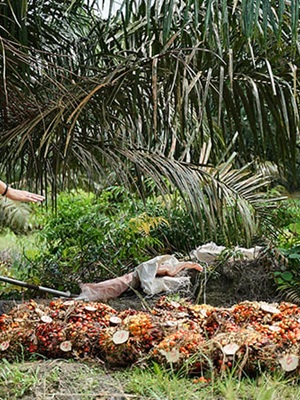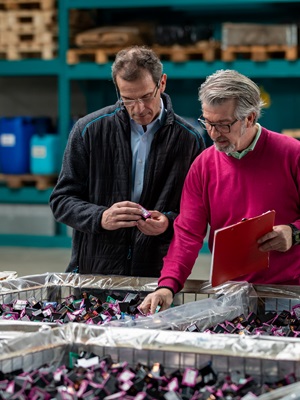Nyepi is a Hindu ceremony only commemorated in Bali, Indonesia. It’s a day of silence, fasting, and meditation for the Balinese Hindus. It’s an obligation and culture for all to observe restrictions on noise and travel. This means being confined to your hotel or villa as no one is allowed on the beaches or streets, with all outside lighting switched off, inside lighting kept weak and noise reduced to a minimum.
This year, Nyepi was held on the 22nd of March. Many people in the world thank Bali for the courage to take 24 hours off in the era of globalisation, as it takes an extraordinary effort for this tourist town to observe “a day of silence.”
Regardless of denomination, everyone is invited to conduct a Catur Brata retreat and evaluate oneself through Tri Kaya Parisudha. Many admit that the morning air after Nyepi is most pleasant, fresh, and clean, not to mention the benefits of saving electricity, which all residents appreciate.
There was scientific writing from Anak Agung Gde Raka Dalem [1] several years ago. The article showed a table comparing the pollutants produced in several areas in Bali every time Bali celebrates Nyepi. The results are, of course, easy to predict. A silent day without activity for 24 hours has reduced pollutants in the air, such as SO2, CO, O3, NO2, and NO, by up to 40 per cent [2]. Who doesn't celebrate fresh morning air at Ngembak Geni after Nyepi? Ironically, almost no one.
I am proud to say Balinese are the only people in the world who can work together to create such an atmosphere. Nyepi is also touted as a powerful medicine to treat the earth, which is getting old. Many also wish Nyepi to be held more frequently in more locations.
However, exchanging ideas with a friend resulted in another thought.
This year's Nyepi, I spent at home with two friends, both immigrants from the village. We decided not to be with our families for various reasons. We enjoyed all the simplicity and beauty of the Catur Brata until the morning. We then celebrated Ngembak Geni by visiting the nearest beach, and we intended to exercise.

Ogoh-ogoh statues for the Ngrupuk parade, which takes place on the eve of Nyepi day
The beach was already very crowded, although it was still very early. Many young men and women from the village were prepared to annihilate the Ogoh-ogoh. At this point, I changed my mind regarding the duplication of Nyepi in other locations.
There was rubbish everywhere. Lots of trash was scattered around, especially in the Ogoh-ogoh procession activity in the city centre. Mineral plastic waste in the form of glasses and bottles was everywhere. I no longer feel pride.
Rising consumerism
Thinking about it logically, it's inevitable. We saw increased consumerism in welcoming this holiday. We shopped in droves, from the village and even in the city. And those who live in cities buy provisions to bring to the village. Supermarkets, minimarkets, to franchise outlets are bustling immeasurably. The lines to the cashier were incredibly long. People shop for a month to prepare for Nyepi.
Almost all the snacks and cooking ingredients purchased are wrapped in plastic! Unfortunately, Indonesia as a country lacks good waste management. As has been the case so far, most plastic waste is thrown into the river and later emptied into the Bali Sea, which we used to be proud of for its pristine beauty.
The name Bali has recently been tarnished due to a viral video by Rich Horner, a British diver. In his video, Rich Horner dived into the waters of Nusa Penida, at Manta Point. It's not the natural beauty of Bali's underwater that was caught on camera, but the clumps of plastic waste everywhere. [3] It's sad.
Up to 70 per cent increase in waste
The head of the Sanitation and Landscaping Office of Denpasar City, I Ketut Wisada, acknowledged the increase in the volume of waste approaching the holidays. In his interview, Wisada said that during regular days, the volume of waste only reaches 2,700 cubic meters per day, with an average person producing 1.4 kilograms of waste per day. However, ahead of the holiday, waste production rose by up to 60-70 per cent. That's just waste created by a person, not including group waste, which is waste produced during Melasti . The calculation is recorded in just one city, not including other areas.
Given all that, is it still appropriate to say that Bali contributed to saving the earth on Nyepi Day? Nyepi produced an extraordinary amount of plastic waste for this day of silence.
If there is a spiritual score for Nyepi in Bali, it would be ZERO.
Why? The +1 score is given for reducing pollution as we observe a day of quietness and self-reflection with inactivity. We must be careful about accepting a lifestyle of producing vast amounts of waste, especially plastic. In this respect, we are -1. The irony is that these two things happened on the same day, on Nyepi, which is supposed to be a day of blessings and trust.
In addition, Indonesia lacks an effective waste management system that involves reducing, recycling and reusing. We should turn this shortcoming into an advantage.
Hopefully, the next Nyepi will truly become a medium for self-introspection. Regardless of whatever happens in this world, it will make us embrace the Abhyasa nature. Abhyasa, which means for good deeds, do it and get used to it every day; no need to wait for Nyepi. Minimise the use of plastic, save water and electricity, and start by being responsible for preserving the Earth.
At least, start with not throwing garbage carelessly. We were taught from childhood to dispose of trash in its place. Why is it that when we grow up, we give ego and laziness a chance to feel victorious, even if only temporary? After all, whatever the impact on this Earth, we will feel it.
Bibliography
[1] A. Raka Dalam, Kearifan lokal dalam pengelolaan lingkungan hidup, Denpasar: UPT Universitas Udayana, 2007.[2] N. L. R. Tirtawati, “Makna Hari Raya Nyepi Bagi Lingkungan,” Lingkungan, pp. 1-5, 10 June 2016.
[3] detiknews, “Laut Nusa Penida Bali Penuh Sampah Plastik,” Sumber berita terkini dan terpercaya, pp. 1-2, 8 Maret 2018.
[4] D. K. d. P. K. Denpasar, “Laporan Volume Sampah Kota Denpasar,” Dinas Kebersihan dan Pertamanan Kota Denpasar, Denpasar, 2015.
Posted 18/05/2023

















